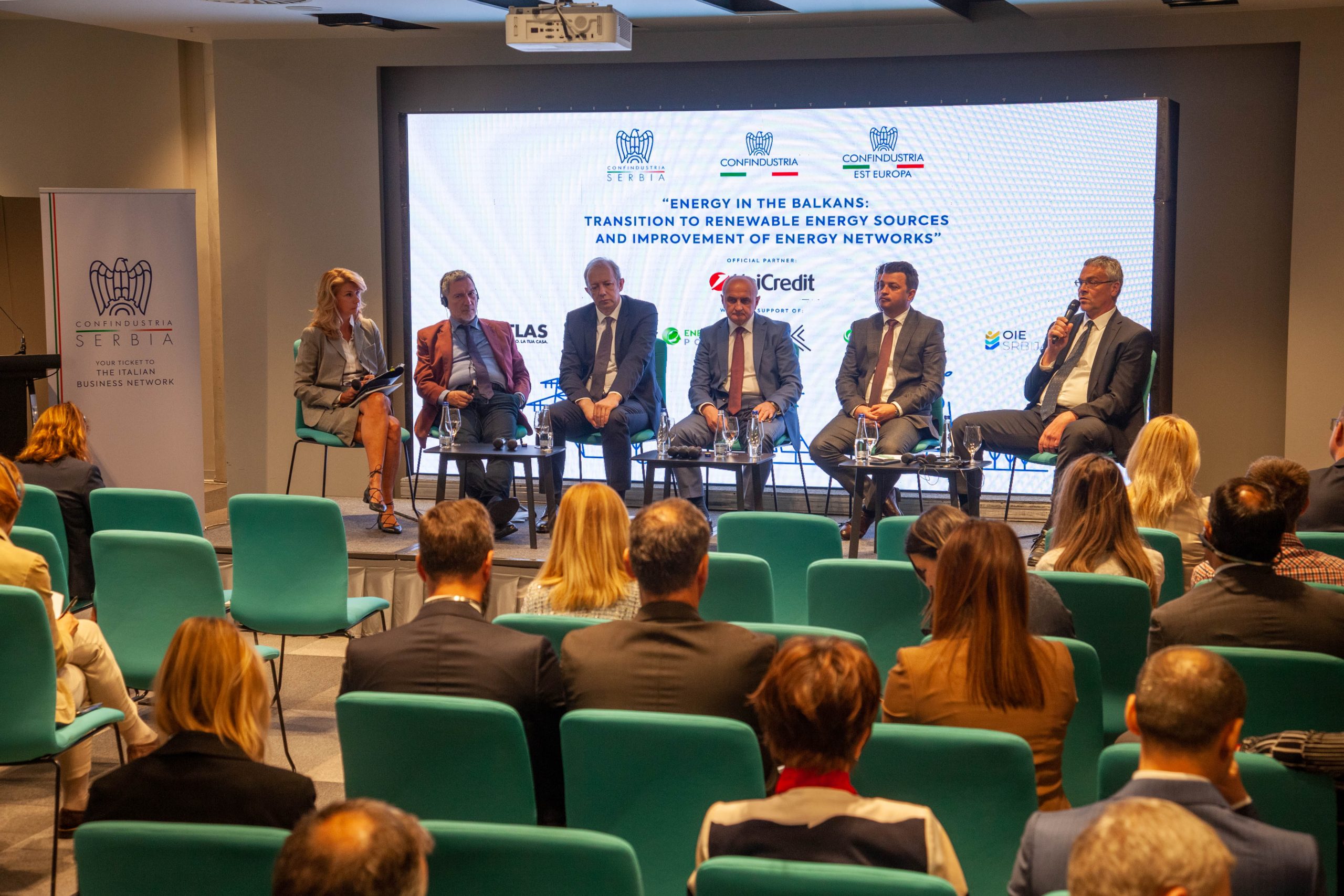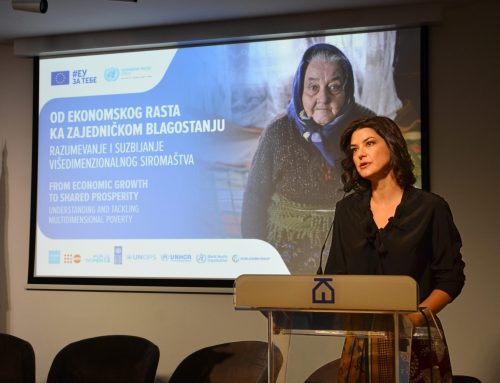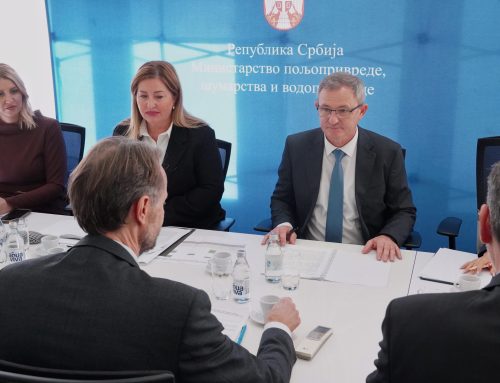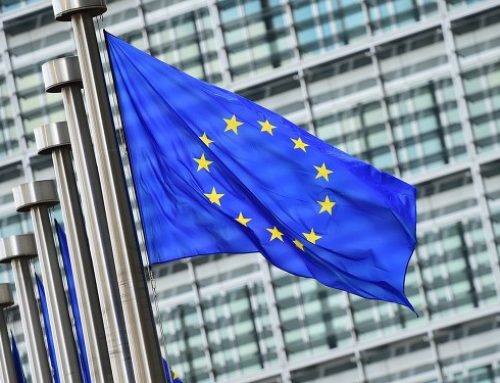The necessity of a faster regional connection, the cooperation of the private and public sectors, challenges of the ongoing global crises and the perspectives that are still opening up in the energy sector. These are the most important topics discussed at today’s international conference “Energy in the Balkans: Transition to Renewable Energy Sources and Improvement of Energy Networks”.
The Ambassador of the European Union to Serbia Emanuele Giaufret reiterated the importance of good cooperation between Serbia and the EU for economic development, which is impossible without one of the foundations – a stable energy sector.
“Since Serbia has been on the European path, we have done a lot together. Sixty percent of Serbia’s trade is with the European Union – which is also Serbia’s largest donor. Diversification of energy sources, acceleration of the introduction of renewable energy technologies and reduction of consumption are of great importance for EU countries and contractual partners of the Energy Community”, said Giaufret.
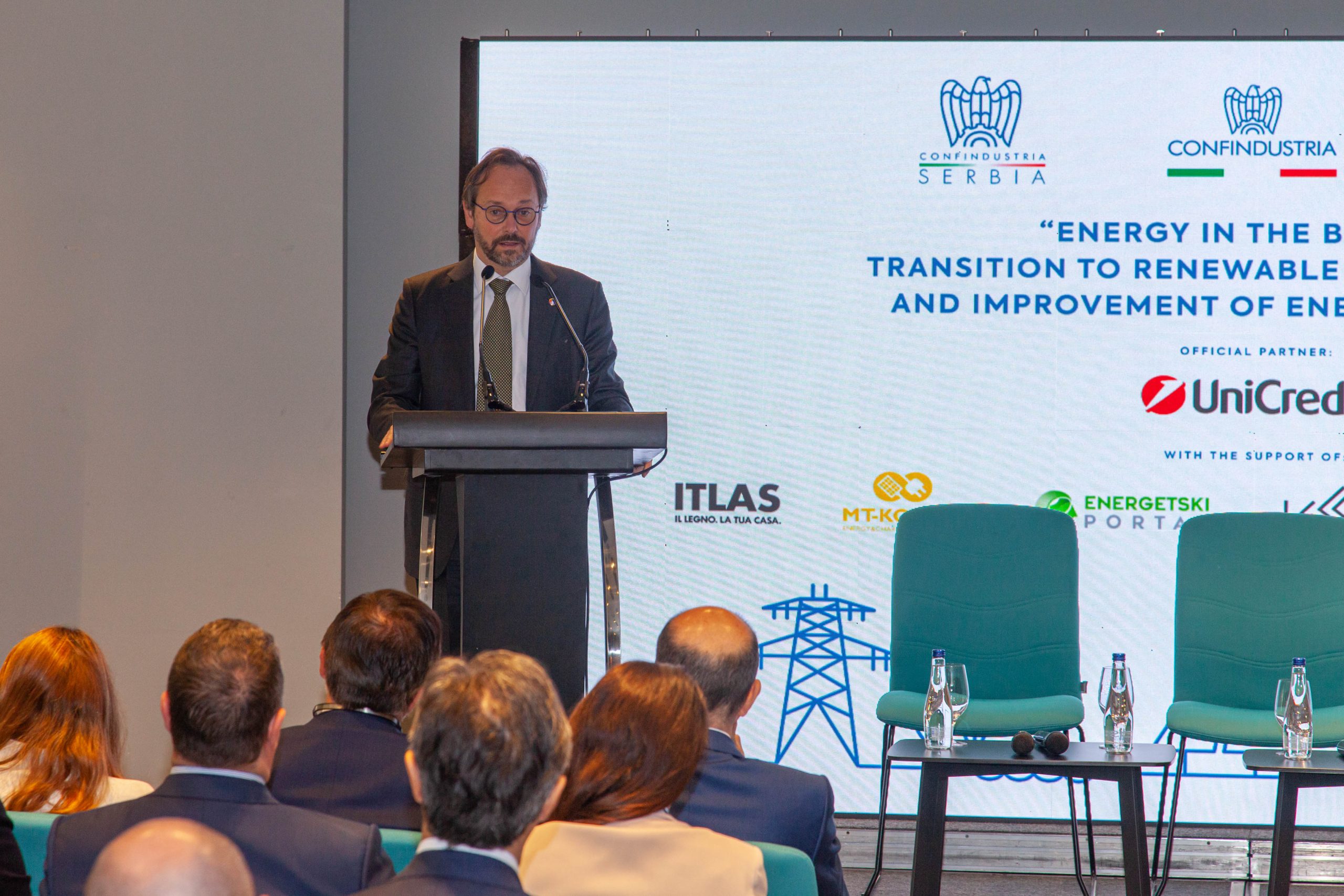
“After Russia’s aggression against Ukraine, the need for a quick transition to green energy is even more obvious. The end of dependence on Russian fossil fuels can be achieved before 2030. The European Commission has proposed the “REPowerEU” Plan, which is based on the diversification of gas sources and a faster reduction of dependence on fossil fuels”, emphasized Giaufret and reiterated:
“We are investing in a new gas interconnection between Serbia and Bulgaria in order to open the possibility of gas supply from multiple sources.
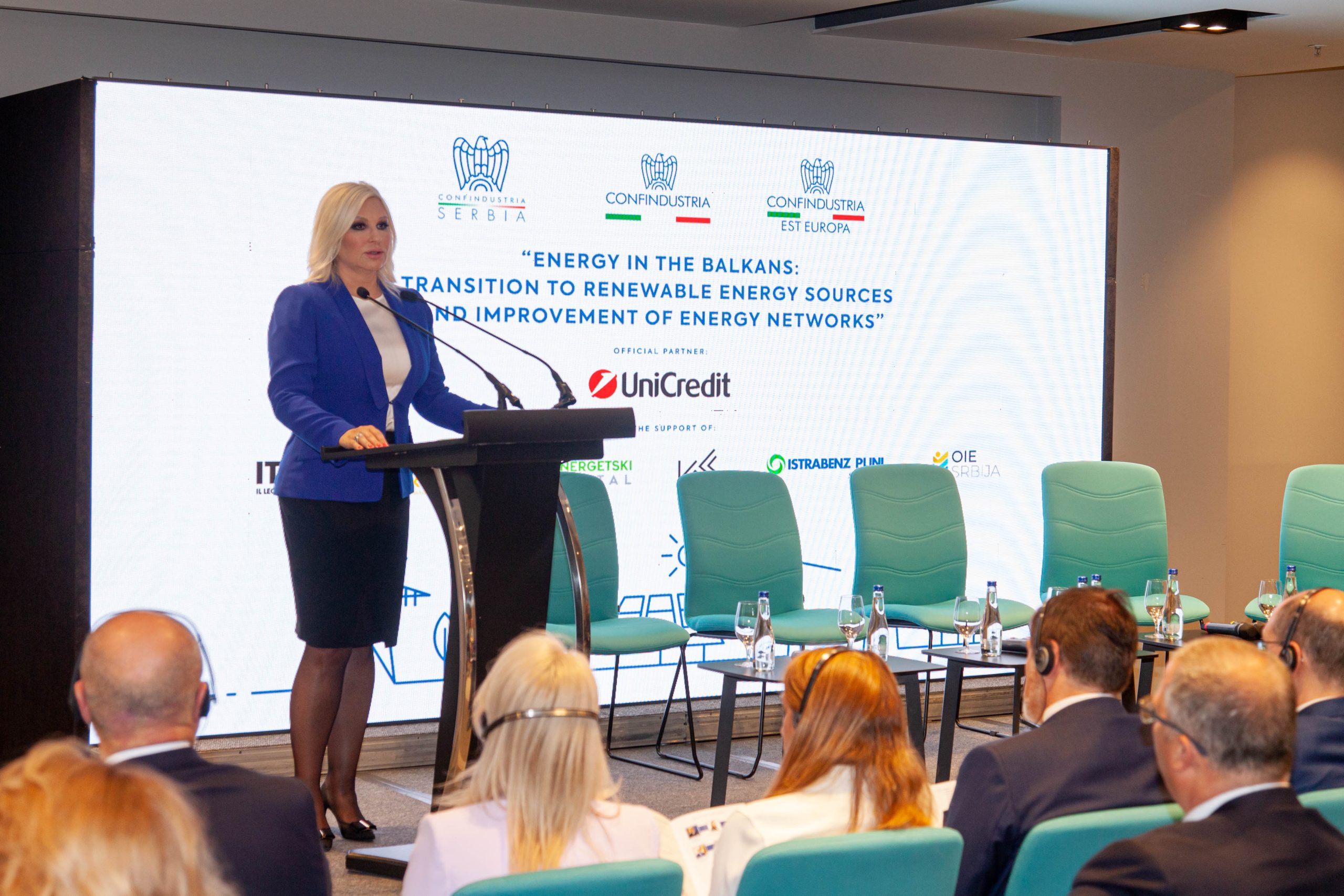
This is a priority project for the European Union and the Central and Southern Eastern Europe Energy Connectivity (CESEC). The project is supported by almost EUR 50 million in EU grants, with a EUR 25 million loan from the European Investment Bank (EIB).”
Deputy Prime Minister and Minister of Mining and Energy, Zorana Mihajlović, stated that energy, especially the sector of renewable energy sources, is the most important for economic development, investments and new jobs, especially in times of crisis.
“Together with investors, our partners from Italy and the Ambassador, we will discuss the improvement of bilateral relations, improvement of cooperation in the energy sector. Since 2009, Serbia and Italy have been strategic partners, with almost 50 thousand people employed by Italian companies here. However, it is important to increase investments in energy, above all in renewable sources,” said Mihajlović and added:
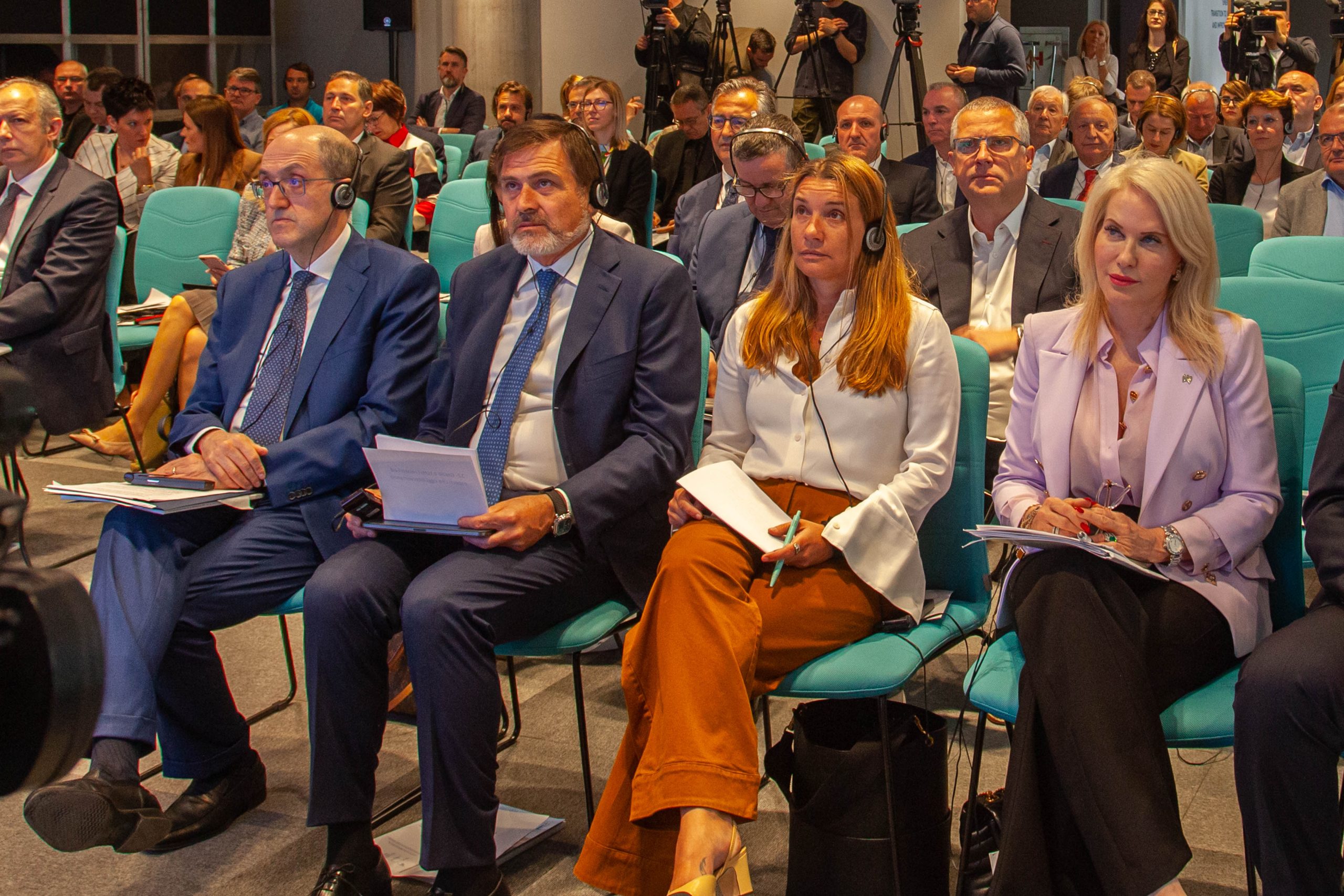
“We have a completely new legislative framework, praised by the entire Europe, especially the Law on the Use of Renewable Energy Sources. We have all the conditions for new investments and there is no time to wait, we need to start cooperating as soon as possible. Now is the moment to start a completely new investment cycle and for both the public sector and private companies to participate in it”, concluded Mihajlović.
The Italian Ambassador to Serbia, Carlo Lo Cascio, emphasized that the record prices of energy products are slowing down the expected economic recovery this year.
“Energy prices lead to urgent reviews of national energy plans. Italy will become independent from Russian gas in 2024. There is a risk that the crisis could affect the Green Agenda, and the transition to renewable energy sources can’t wait any longer”, underlined Lo Cascio.
Patrizio Dei Tos, President of Confindustria Serbia, stated that energy is a key topic that we must focus on together.

“We all need energy to function and sometimes we take it for granted. Together we must find answers to the topics that bother us. The economy thrives if the state functions well, so the presence of government representatives is crucial,” said Dei Tos.
Confindustria Est Europa and Confindustria Serbia, with the support of Confindustria, organized an international conference in Belgrade with the aim of presenting to interested Italian companies the investment and sales opportunities that the energy sector offers in the Balkan region, more precisely in Serbia, Montenegro, North Macedonia, Bosnia and Herzegovina, Bulgaria and Greece.
The main implementation facilities of the Economic and Investment Plan for the Western Balkans is the Western Balkans Investment Framework (WBIF) which enables investment through leading projects with technical assistance and grant co-financing.
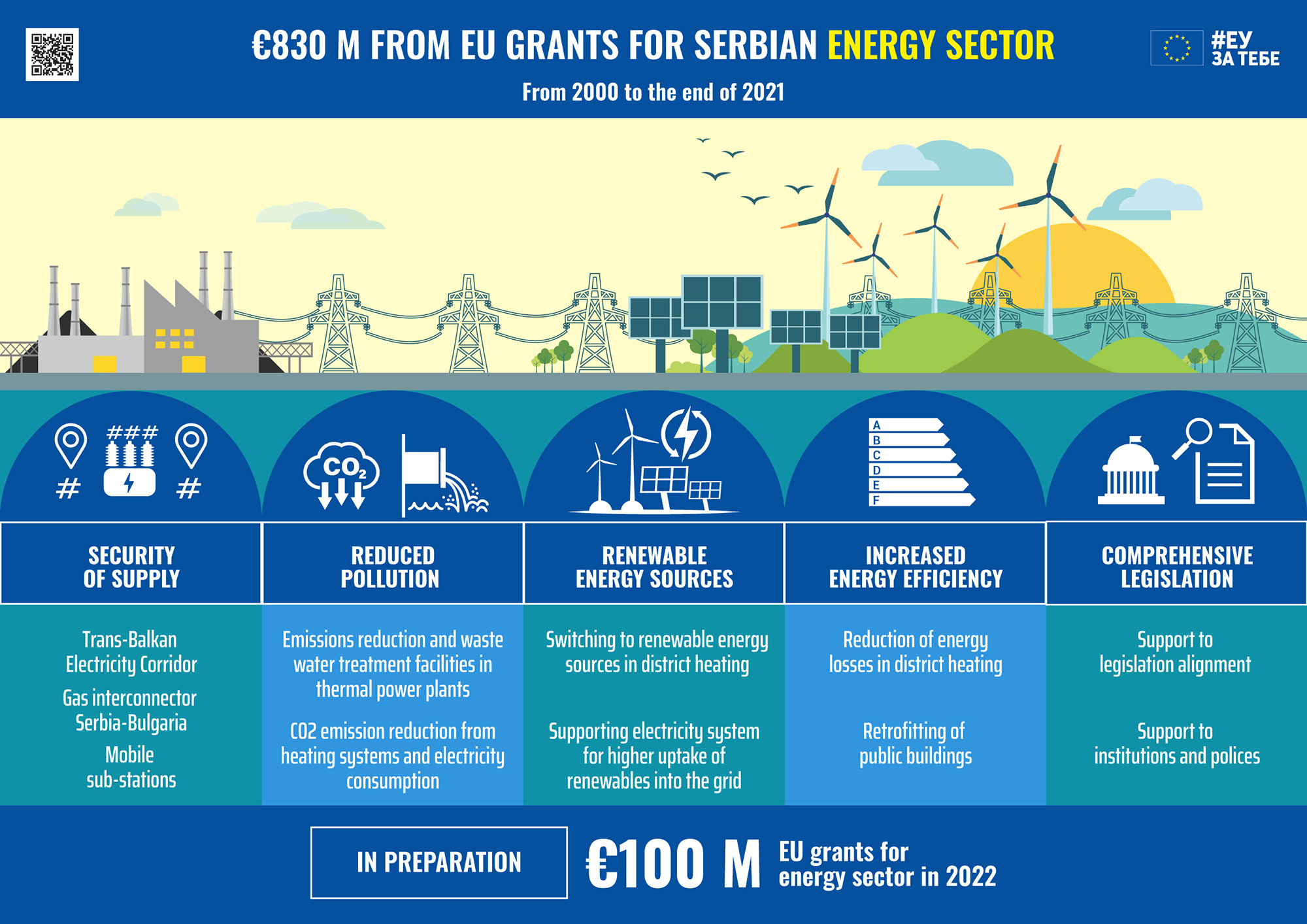
The European Union is a bigger donor than all other international donors combined. In the past two decades, the EU has invested more than EUR 830 million in the energy sector. In 2022 alone, the EU support to Serbia’s energy sector is estimated at EUR 100 million.
Diversification of energy sources, security of supply, energy efficiency and decarbonisation of the economy, in accordance with the Paris Agreement, are the main objective of EU support. The support of the European Union is realized in cooperation with the Government of Serbia. The EU will continue to support Serbia in its EU acquis harmonization and creating structures that will enable further investments in the decarbonisation of the energy sector.

